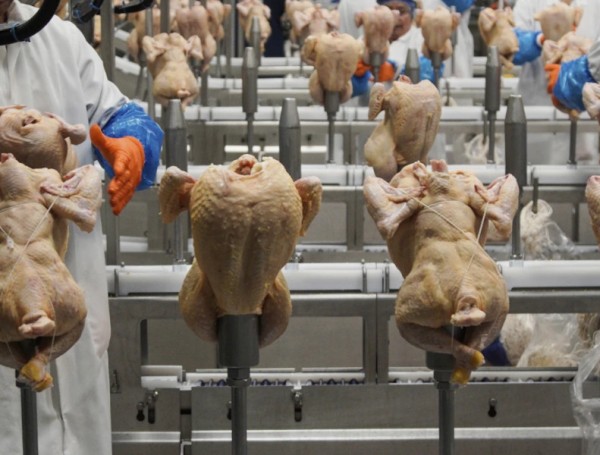BISMARCK, N.D. (AP) — A North Dakota panel will consider Thursday whether to approve permits for underground storage of hundreds of millions of metric tons of carbon dioxide that a proposed pipeline would carry from ethanol plants throughout the Midwest.
Approval from the governor-led, three-member Industrial Commission would be another victory for Summit Carbon Solutions' controversial project, though further court challenges are likely. Last month, the company gained approval for its North Dakota route, and Iowa regulators also have given conditional approval.
Also on Thursday, Minnesota utility regulators were scheduled to consider approval for a 28-mile leg of the project of the project.
Summit's 2,500-mile, $8 billion pipeline would transport planet-warming CO2 emissions from 57 ethanol plants in North Dakota, South Dakota, Iowa, Minnesota and Nebraska for underground storage in central North Dakota.
North Dakota Republican Gov. Doug Burgum chairs the Industrial Commission, which includes the state attorney general and agriculture commissioner and oversees a variety of energy topics and state-owned enterprises.
Burgum is President-elect Donald Trump's choice for Interior Secretary and to lead a new National Energy Council. Burgum supports Summit's project and has frequently touted North Dakota's underground carbon dioxide storage as a “geologic jackpot.” In 2021, he set a goal for the No. 3 oil-producing state to be carbon-neutral by 2030. His term ends Saturday.
Summit applied for permits for three storage facilities, which would hold a combined, estimated maximum of 352 million metric tons of CO2 over 20 years. The pipeline would carry up to 18 million metric tons of CO2 per year to be injected about 1 mile (1.6 kilometers) underground, according to an application fact sheet.
Summit's documents detail a well site layout encompassing a pump/meter building, gas detection stations, inlet valves and emergency shutoff valve.
Carbon dioxide would move through the pipeline in a pressurized form to be injected deep underground into a rock formation.
Jessie Stolark, who leads a group that includes Summit and supports the project, said the oil industry has long used similar technology.
“We know that this can be done safely in a manner that is protective of human health and underground sources of drinking water,” said Stolark, executive director of the Carbon Capture Coalition.
Summit's project has drawn the ire of landowners around the region. They oppose the potential taking of their property for the pipeline and fear a pipe rupture releasing a cloud of heavy, hazardous gas over the land.
A North Dakota landowners group is challenging a property rights law related to the underground storage, and attorney Derrick Braaten said they likely would challenge the granting of permits for the storage plans.
“The landowners that I'm working with aren't necessarily opposed to carbon sequestration itself,” Braaten said. “They're opposed to the idea that a private company can come in and use their property without having to negotiate with them or pay them just compensation for taking their private property and using it.”
Carbon capture projects such as Summit's are eligible for lucrative federal tax credits intended to encourage cleaner-burning ethanol and potentially result in corn-based ethanol being refined into jet fuel.
Some opponents argue the amount of greenhouse gases sequestered through the process would make little difference and could lead farmers to grow more corn despite environmental concerns about the crop.
In Minnesota, utility regulators were expected to decide Thursday whether to grant a route permit for a small part of the overall project, a 28-mile (45-kilometer) segment that would connect an ethanol plant in Fergus Falls to Summit’s broader network.
An administrative law judge who conducted hearings recommended in November that the Public Utilities Commission grant the permit, saying the panel lacks the legal authority to reject it. The judge concluded that the environmental impacts from the Minnesota segment would be minimal, that the environmental review met the legal requirements, and noted that Summit has secured agreements from landowners along most of the recommended route. Commission staff, the state Department of Commerce and Summit largely concurred with those findings.
Environmental groups that oppose the project dispute the judge’s finding that the project would have a net benefit for the environment.
In addition to North Dakota, Summit has a permit from Iowa for its route, but regulators for that state required the company to obtain approvals for routes in the Dakotas and underground storage in North Dakota before it can begin construction. The Iowa Utilities Commission's approval sparked lawsuits related to the project.
Last year, South Dakota regulators rejected Summit's application. The company submitted another permit application last month.
In Nebraska, where there is no state regulatory process for CO2 pipelines, Summit is working with individual counties to advance its project. At least one county has denied a permit.
___
Karnowski reported from Minneapolis.


















